This Colorado Hotel May Be the First Carbon Positive Hotel in the U.S. — and We Got a Sneak Peek Inside
Who says going green can't be beautiful?
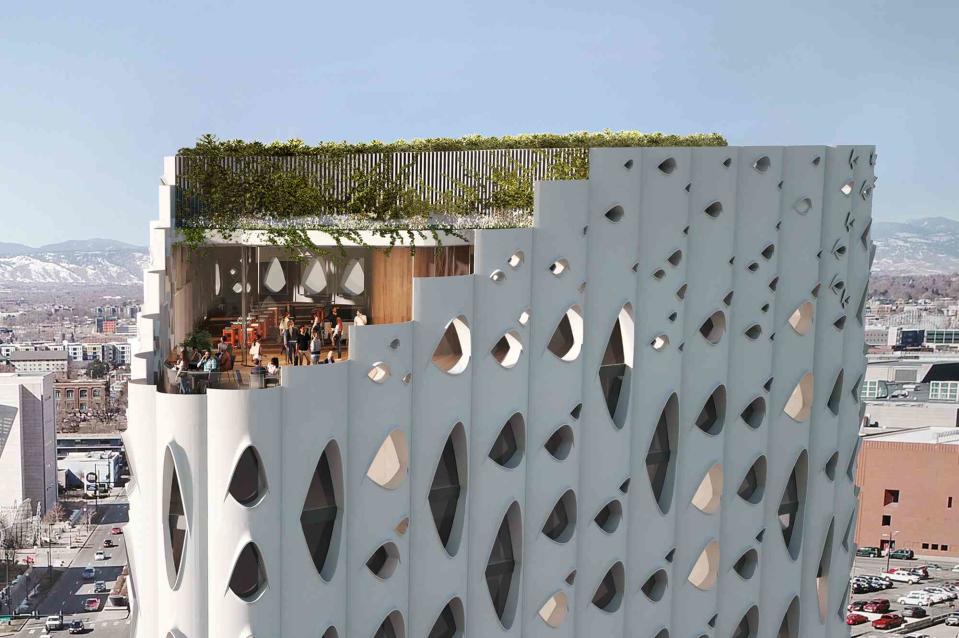
Studio Gang
In 2022, Populus, a soon-to-open hotel in Denver, made waves by announcing it planned to be the first “carbon positive” hotel in the United States. (This means the hotel will remove more carbon dioxide (CO2) from the air than it emits, resulting in negative carbon emissions.) Now, it’s unveiling its interiors, proving that going green can be incredibly stylish, too.
The hotel, set to open in 2024, is sharing its first interior photos with Travel + Leisure, showcasing spaces reflective of the brand’s all-natural ethos. It makes sense considering its moniker is the scientific name for aspen trees (Populus tremuloides) and its exterior is meant to mimic the distinct eye-shaped patterns on the tree.
Put together by the team at Wildman Chalmers Design, guests can soon experience a space that feels both warm and calming with neutral tones like sand-colored flooring, terra cotta decor, and pops of pistachio green throughout its 265 rooms and common spaces. Plus, there's a unique art collection curated by artist and environmentalist Katherine Homes to add distinct visual elements.
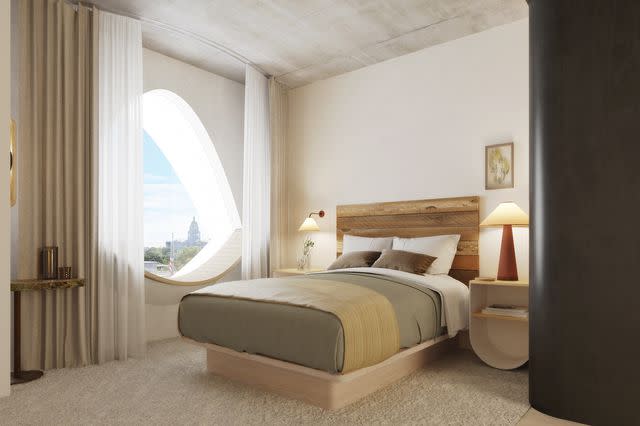
Studio Gang
“We approached Populus’ design vision from an experience standpoint first — thoughtfully curating colors, textures, and shapes that not only look beautiful but appeal to all of the senses and emotions, just as a walk through the forest would,” Heather Wildman, the principal and design director of Wildman Chalmers Design, shared in a statement obtained by T+L. “By taking cues from nature and partnering with local artisans, we hope to create a strong connection between the design of Populus and the earth and its surroundings. The result will be a hospitality experience that’s warm, welcoming, and uniquely Colorado.”
While the design is already striking, it becomes all the more beautiful when you learn it was made with as many reclaimed and eco-friendly materials as possible. That included utilizing Holcim’s innovative EcoPact low-carbon concrete mix — making this blend emits 30 percent less CO2 emissions than creating standard concrete.
And that gorgeous tapestry hanging in the lobby? That’s made from some 500 sheets of Reishi, a leather alternative sourced from mycelium, aka the root of mushrooms. The wood slats hanging above it are another nod to the hotel’s love of sustainability, as they’re made with reclaimed wood from snow fencing found in Wyoming.
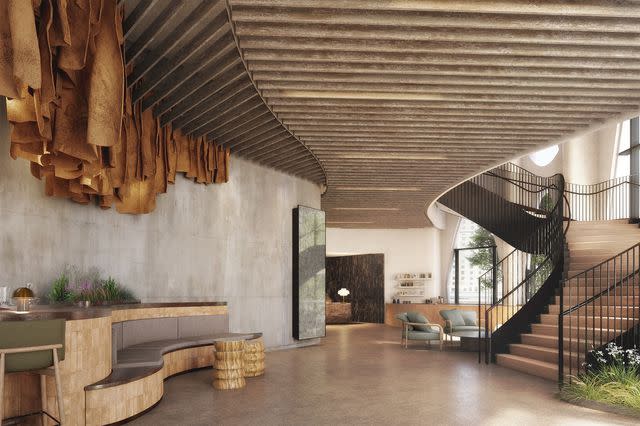
Studio Gang
Though the hotel itself doesn't sequester carbon (the process of capturing and storing CO2 from the atmosphere) its most beautiful external feature does — the newly planted forest. Rather than merely purchase carbon credits, the hotel has planted more than 70,000 trees (Engelmann Spruce, a tree previously diminished in the region by beetle kill) in partnership with One Tree Planted and the U.S. Forest Services in Gunnison, Colorado.
In fact, if guests are curious, they can go see the trees for themselves by popping the coordinates 38°03'59.4 "N 106°55'24.6 "W in their GPS. The trees are spread out over more than 170 acres as part of the National Wilderness Preservation System, which is protected federally managed wilderness. According to the 8 Billion Trees calculator, assuming the trees are close to two years old, that means this mini forest can store 305 tons of carbon, allowing "876,960 people to breathe for an entire day."
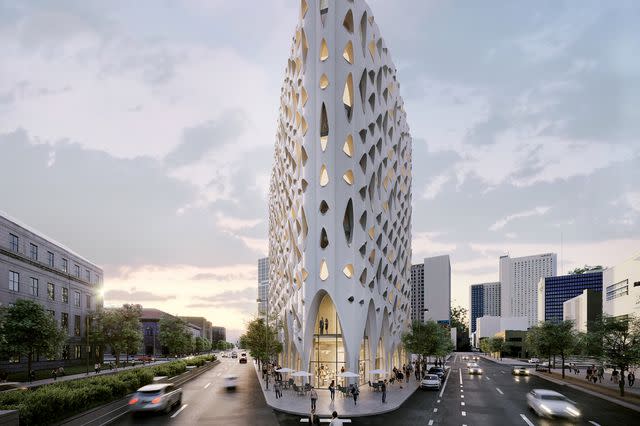
Studio Gang
However, its efforts won’t stop at the trees. Urban Villages, the real estate developer behind the hotel, and its partners say they plan to uphold the hotel’s carbon positive status throughout its lifetime by tracking and offsetting the carbon emissions of its operations, including the hotel’s energy use, food sourcing, guest and employee transportation, and more. Its goal is to also use more renewable energy sources as they become available, to source food used in its ground floor and rooftop restaurant via regenerative agriculture partnerships, and to utilize landfill diversion programs to minimize waste.
“We hope Populus will serve as a model for how the real estate industry can more directly address the urgency of climate change while also meeting the preferences of today’s eco-conscious traveler,” Jon Buerge, president and partner at Urban Villages, said in a statement. “Buildings currently account for 45 percent of greenhouse emissions in the United States; we need a new way to build. We hope the transparency with which we are sharing our ever-evolving efforts to reduce the building’s carbon footprint during construction and operations, and to establish creative, local ways to sequester additional carbon off-site, will empower other developers to take a more sustainable and holistic approach."
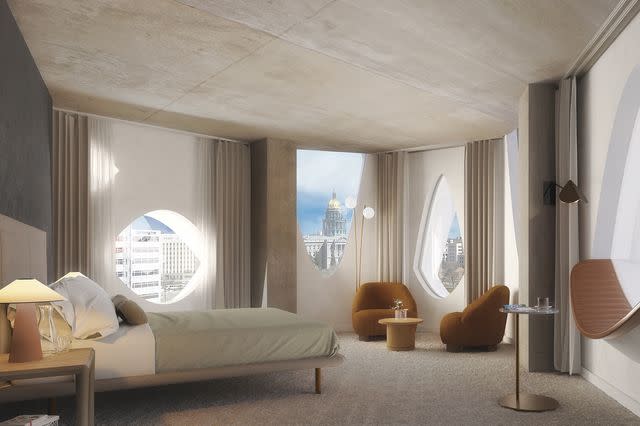
Studio Gang
The one thing you won’t find here; however, are any photos of the hotel’s parking garage. That’s because it purposefully chose to leave it out, as the concrete used to create one would only release more carbon. Instead, guests are encouraged to use the number of public transportation services around the hotel, including buses and the light rail. Don’t worry if you do drive — the hotel will still have a valet just in case.
For more Travel & Leisure news, make sure to sign up for our newsletter!
Read the original article on Travel & Leisure.

